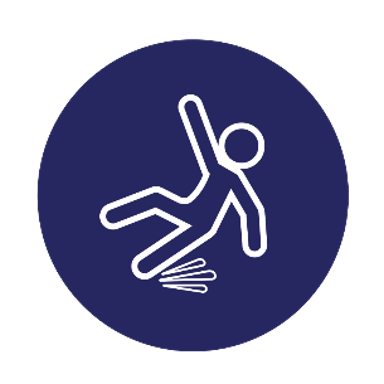DiSC programme menu » DiSC homepage | Projects | Meet the team and contact | Events | Annual Review

343 residents supported across 12 care homes
Acoustic Monitoring case studies and media releases:
Preventing falls in care homes
Acoustic Monitoring uses technology to check on residents more often at night without invading their privacy. The system works out whether sounds and movements made by the resident are normal – if not, it raises an alarm to alert the home’s staff. Connected through Wi-Fi, the device can recognise sounds such as the person waking up, crying out, calling for help or being restless.
Staff don’t need to check on people as often, resulting in residents having fewer disturbances and a better night’s sleep. What’s more, the always-on device can alert staff to possible problems at any time, meaning a resident who needs help doesn’t have to wait until the next planned visit and is also less likely to have a fall.
The system, which is used only with the consent of the resident involved, also provides extra reassurance for family members and friends about the safety of their loved one.
We conducted a two-year pilot project to test and evaluate Acoustic Monitoring to build an evidence base for future investment. The aim was to support 502 residents in care settings, and to enhance safety, respond to emergencies more quickly, improve wellbeing by reducing disturbed sleep, and provide efficient nighttime monitoring.
15 care homes participated in the scheme, although three withdrew due to various internal issues unrelated to the technology. As at September 2024, there were 343 kits in use. Analysis of the data demonstrated a positive return on investment for both providers and the BLMK wide Integrated Care System, but the lack of reliable data and uneven participation hindered the evidence of some anticipated benefits. Where care homes were better engaged, the evidence suggests good potential of remote monitoring to reduce hospital admissions, improve quality of life for carers, and improve resident outcomes and quality of care.
All care providers with live contracts funded by BLMK ICP have been advised of their contract end dates and have the opportunity to take up their own contract directly with the supplier going forwards.
What residents and their families say:
“I think the system is good because I know that staff can check on me in the night without waking me up. In the past, when checking on me the light would be turned on. I would struggle to get back to sleep after this, so I think this is much better.” – AC, resident at Burlington Hall Care Home
“Because he was having such horrendous nights and nightmares. The staff would be able to go and comfort him but, if they were busy somewhere, they wouldn’t hear him, perhaps shouting out for them. Since he’s been here, obviously, I’m feeling better in myself and I’m very, very happy with him here. I feel he’s being really looked after.” – JJ, wife of resident at Elcombe House (see video above)
What our care services say:
“Acoustic monitoring has been a great help in ensuring the safety of the residents without disrupting their usual sleeping patterns. It is easy to use and reduces the likelihood of resident falls during the night.”- MK, Night Manager at Burlington Hall Care Home
“Since introducing Ally [acoustic monitoring] just 10 weeks ago, we have not had a single night-time fall. We are very happy to have been introduced to the Ally Care System, it has definitely improved the security of our residents.” – care home manager
“It’s improved the patient experience because the residents used to be awake the whole night, but now they are sleeping really well.” – care assistant
Contact us at:
blmkicb.digital.socialcare@nhs.net

